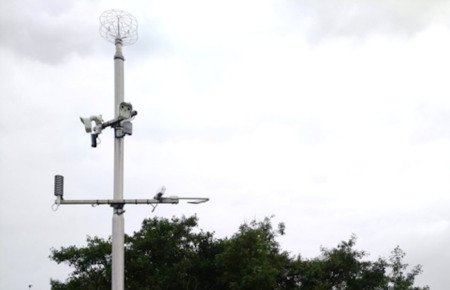Global automotive technology supplier Continental is trialling the latest innovation to its electronic horizon (eHorizon) system that uses a ‘swarm’ of connected vehicles to provide real-time hyper-local weather information.
Vehicles equipped with the eHorizon.Weather technology supply exact weather information to optimize short-term forecasts and integrate real-time, location-specific weather data to alert drivers in advance of critical weather conditions. Continental is working in partnership with the French national weather service Météo-France on the project and is currently testing eHorizon.Weather in more than 200 vehicles in France to adapt and further improve the technology through direct user feedback. With its connected fleet, Continental is creating an open test field for mobility services to trial different applications for connected vehicles in a real-world driving environment, and is also forming new partnerships to make use of the technology.
The eHorizon.Weather technology uses existing connected vehicle architecture, such as windshield wiper sensors, fog lights, or ABS and ESP, to obtain data on temperature, air pressure, and visibility, or other information on road surface conditions. This data is then loaded to the Continental cloud backend via integrated telematics units, and is processed by Météo-France. This allows the weather forecasting service to improve the information it provides, and send location-specific weather warnings back to vehicles in real time where they reach the driver’s attention with the help of an interactive road map that integrates safety-relevant and other information, which is given both visually and acoustically via voice prompts.
Drivers are informed of critical road conditions in advance, so that they can adapt their driving style to suit adverse weather conditions. At the same time, they can either acknowledge the instructions given by the interactive road map or give the all-clear once they have passed the section of road with the issued weather warning.
The vehicle swarm records data at the precise location of the weather event and makes it available in the cloud, allowing Météo-France to expand its conventional weather monitoring methods. The swarm intelligence improves the quality of short-term weather forecasts (0 to 3 hours) and the effectiveness of severe weather warning systems, reducing the risk of traffic accidents and offering drivers a weather-based route to optimize their journey planning.
Jean-Yves Le-Gall, design and innovation manager at Continental, said, “Together with Météo-France, we are working on a range of mobility services for more safety and convenience, integrating information from our vehicle sensors with external data to bring real-time weather warnings to vehicles.”




